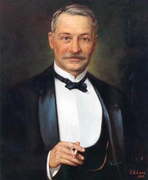
Thomas Walter Scott was the first premier of Saskatchewan from 1905 to 1916. Scott was Saskatchewan's second longest-serving Premier, serving one continuous term from 1905 to 1916). He led the Saskatchewan Liberal Party in three general elections, winning all three with majority governments before retiring. He was the first of six Liberal Premiers to date. He was succeeded by William Melville Martin. Scott was also the minister of various departments during his tenure as premier. Prior to the creation of Saskatchewan in 1905, Scott was a Member of Parliament in the federal House of Commons of Canada, elected in the general elections of 1900 and 1904.

Sir Frederick William Alpin Gordon Haultain was a lawyer and a long-serving Canadian politician and judge. His career in provincial and territorial legislatures stretched into four decades. He served as the first premier of the North-West Territories from 1897 to 1905 and is recognized as having a significant contribution towards the creation of the provinces of Alberta and Saskatchewan. From 1905 on he served as Leader of the Official Opposition in Saskatchewan as well as Leader of the Provincial Rights Party. His legislative career ended when he was appointed to the judiciary in 1912.

Medicine Hat was a provincial electoral district in Alberta, Canada, mandated to return members to the Legislative Assembly of Alberta from 1905 to 1971, and again from 1979 to 2019. The electoral district was named after the City of Medicine Hat.

The 1908 Saskatchewan general election was held on August 14, 1908 to elect members of the Legislative Assembly of Saskatchewan. Premier Walter Scott and his Liberal Party were re-elected for a second term, defeating the Provincial Rights Party of Frederick W. A. G. Haultain.

The 1912 Saskatchewan general election was held on July 11, 1912 to elect members of the Legislative Assembly of Saskatchewan. Premier Walter Scott led the Liberal Party of Saskatchewan to a third term in office with a significant increase in the share of the popular vote. The opposition, now renamed from the Provincial Rights Party to the Conservative Party of Saskatchewan and led by Wellington Bartley Willoughby, lost both votes and seats in the legislature.
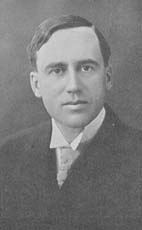
The 1917 Saskatchewan general election was held on June 26, 1917, to elect members of the Legislative Assembly of Saskatchewan.

The 1921 Saskatchewan general election was held on June 9, 1921, to elect members of the Legislative Assembly of Saskatchewan.
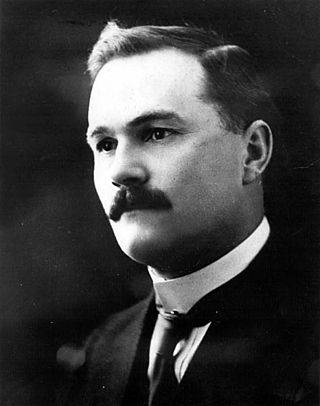
The 1925 Saskatchewan general election was held on June 2, 1925, to elect members of the Legislative Assembly of Saskatchewan.
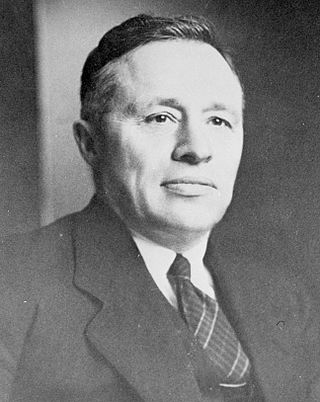
The 1934 Saskatchewan general election was held on June 19, 1934, to elect members of the Legislative Assembly of Saskatchewan.

The 1964 Saskatchewan general election was held on April 22, 1964, to elect members of the Legislative Assembly of Saskatchewan.

The 1982 Saskatchewan general election was held on April 26, 1982, to elect members of the Legislative Assembly of Saskatchewan.
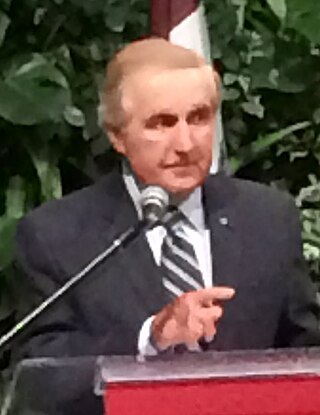
The 1991 Saskatchewan general election was held on October 21, 1991, to elect members of the Legislative Assembly of Saskatchewan.

The 1905 Alberta general election was the first general election held in the Province of Alberta, Canada, shortly after the province entered Canadian Confederation on September 1, 1905. The election was held on November 9, 1905, to elect twenty-five members to the 1st Alberta Legislative Assembly.

Athabasca is a provincial electoral district for the Legislative Assembly of Saskatchewan, Canada. It is located in the extreme northwest corner of the province. The major industries are tourism, mineral extraction, forestry, commercial fishing, and trapping. The Cluff Lake uranium mine is located in this constituency, as well as the Athabasca Sand Dunes Provincial Park and the Clearwater River Provincial Park. The major communities are La Loche, Île-à-la-Crosse and Buffalo Narrows with populations of 2,136, 1,268, and 1,137 respectively.

Fort Saskatchewan-Vegreville is a provincial electoral district in Alberta, Canada. The district is mandated to return a single member to the Legislative Assembly of Alberta using the first-past-the-post method of voting.
Victoria was one of the original 25 provincial electoral districts in Alberta, named for Fort Victoria on the North Saskatchewan River. It was mandated to return a single member to the Legislative Assembly of Alberta by the first past the post method until 1917, and by instant-runoff voting from 1926 until it was abolished in 1940.
The North-West Territories Liberal-Conservative Party also known formally as the Liberal-Conservative Association prior to 1903 and the Territorial Conservative Association after 1903, was a short lived political party in the Northwest Territories, Canada. The party was active between 1897 and 1905. It was a branch of the federal Conservative Party of Canada.

The following outline is provided as an overview of and topical guide to Saskatchewan:
Pelly is a former provincial electoral district for the Legislative Assembly of the province of Saskatchewan, Canada. Located in east-central Saskatchewan, it was centered on the village of Pelly. The riding was created before the 2nd Saskatchewan general election in 1908, and dissolved before the 23rd Saskatchewan general election in 1995. This constituency elected the first woman to the Saskatchewan legislature: Sarah Ramsland.
Shellbrook was a provincial electoral district for the Legislative Assembly of the province of Saskatchewan, Canada, in the area of Shellbrook, Saskatchewan, west of Prince Albert.



